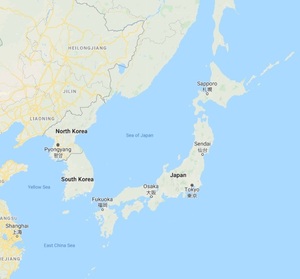
Japan’s Ministry of Economy, Trade and Industry has proposed default greenhouse gas (GHG) emissions values and calculation methods for biobased fuels that are eligible to participate the country’s feed-in tariff and feed-in premium (FIT/FIP) programs for power generation, according to a report filed with the USDA Foreign Agricultural Service’s Global Agricultural Information Network.
The report explains that starting in April 2023, Japan’s Agency for Natural Resources and Energy plans to require FIT/FIP-approved power plants to calculate GHG emission values for imported agricultural residues, imported woody biomass and domestic woody biomass.
METI and ANRE have held a series of biomass sustainability working group meetings since early 2019. Based on those meetings, METI on Dec. 23, 2022, proposed default GHG emissions values and calculation methods for crude palm oil (CPO), palm stearin, palm kernel shells (PKS), palm trunk, imported wood chips, imported wood pellets and domestic woody biomass used in FIT/FIP programs.
According to the report, ANRE is proposing to use information on vessel type, transportation distance, methane capture during the manufacturing process, and biofuel use during the drying process to determine the default GHG values for biomass feedstocks. The proposal considers PKS a byproduct and did not include GHG emissions from palm oil processing in the calculation for default emissions values. The report also indicates that the proposed default values for woody biomass do not account for GHG emission reduction associated with effective forest management practices, such as those that lower the risk of wildfires.
A public comment period on the proposed default GHG emissions is open though Jan. 23. A full copy of the report is available on the USDA FAS GAIN website.